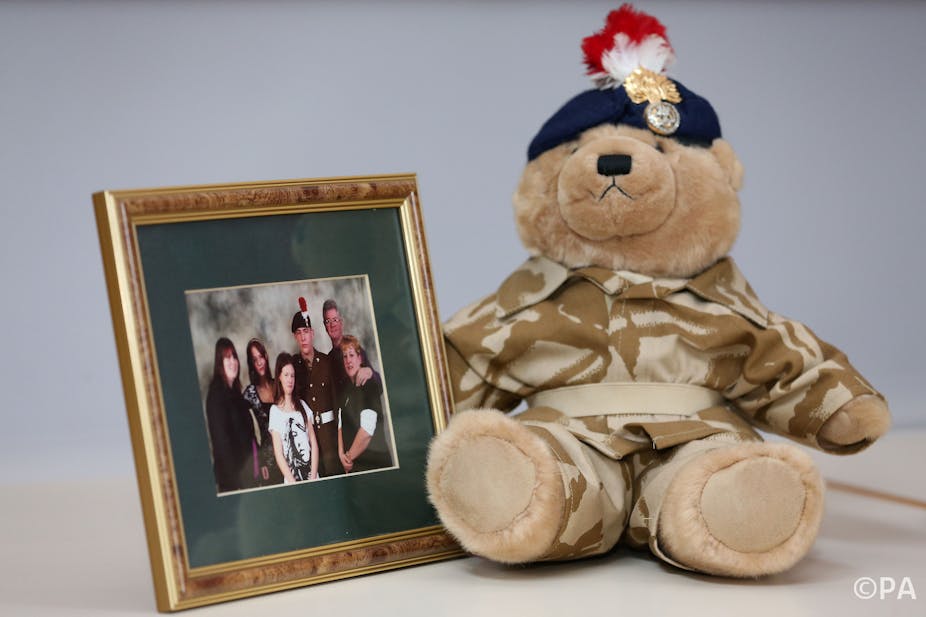The brutal killing of Drummer Lee Rigby on the streets of Woolwich has raised serious questions about the safety of our soldiers at home, and how such violence could affect their recovery from the psychological toll of war. Rigby served in Afghanistan in 2009.
On tour, soldiers face repeated exposure to death and trauma. Their return home is supposed to offer safety and a time to recuperate from the stressful nature of their tours. Events like Rigby’s murder could shatter that sense of safety for some.
Post-traumatic stress disorder (PTSD) is a severe reaction that some people develop after being attacked or sexually assaulted, for example, or witnessing such events.
While most soldiers return home without showing psychological problems, current research shows that up to 18% may show signs of a psychological problem and almost 3% will show signs of PTSD.
So of the 9,500 British soldiers who have been deployed to Afghanistan, almost 285 are likely to suffer from PTSD and up to 1,700 may suffer from another psychological health problem, such as depression.
They will re-live terrifying memories of their duties. They may question decisions they made, feel strong emotions such as anger, guilt and shame, and feel hyper-alert and aroused, have difficulty winding down and relaxing and may feel as though they are constantly full of adrenalin.
Helping soldiers re-adjust is a priority. If soldiers face danger at home, their risk of re-adjusting and re-integrating with their families diminishes and we are faced with a potentially increasing incidence of PTSD as well as problems in helping them to overcome this debilitating problem.
The current treatments recommended for PTSD by the National Institute for Clinical Health and Excellence work best when the people seeking treatment are experiencing safety: when there is no longer ongoing threat in their home environment.
Trauma-focused cognitive behavioural therapy, the primary treatment of choice for PTSD, requires that people with PTSD do not have ongoing threat in their environment when they come for treatment.
So violence at home adds another stressful dimension for returning soldiers. Simon Wessely’s group at King’s College London found that stressful events at home, such as the death or serious illness of a relative, problems with children or serious financial problems, were linked to PTSD and other psychological problems in soldiers who had returned from Afghanistan.
Research I conducted at King’s College London found that problems with memory, such as the ability to remember a list of words, affected how well people with PTSD responded to cognitive behavioural therapy.
Violence risks serious injury and head trauma, which undoubtedly affects memory functioning and the ability to respond to effective psychological interventions.
For all these reasons, it is imperative that we prioritise the safety of our soldiers when they return home. Soldiers need to know that they are no longer on the battlefield when they leave places like Afghanistan.
There is nothing to be done now to bring Lee Rigby back, but public support in the face of violence will help our soldiers feel safe. This in turn will ensure they are being helped to maintain their mental health.
Editor’s note: This article originally stated that 2,850 soldiers deployed to Afghanistan were statistically likely to suffer from PTSD. This was incorrect, and has been amended to 285.

